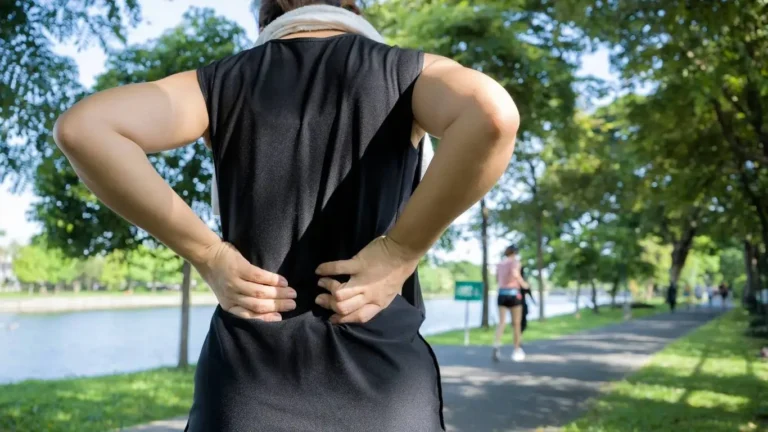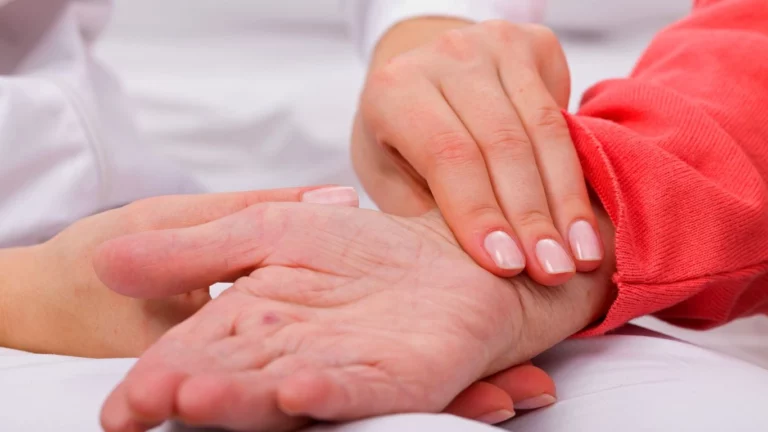Can Flaxseeds Lower Blood Pressure Naturally? Powerful Benefits Revealed
As an Internal Medicine Physician specializing in hypertension management, I’m often asked by patients, “Can flaxseeds lower blood pressure naturally?” It’s a great question because managing blood pressure with lifestyle changes is something we all strive for before jumping straight to medications. Flaxseeds have gained quite a bit of buzz lately for their potential health benefits, especially in heart health. But how much of that is backed by science? And is it really worth adding them to your daily routine if you’re looking to control blood pressure? Let’s dig in.
Understanding High Blood Pressure and Natural Remedies
High blood pressure, or hypertension, is a common condition that affects millions worldwide. It quietly increases the risk of serious problems like heart attacks, strokes, and kidney disease. Managing it often requires a combination of medication, lifestyle adjustments, and diet tweaks. While I always emphasize the importance of medical guidance, I also encourage patients to explore natural ways that can complement their treatment plan.
One of the most popular natural remedies people ask about is flaxseeds. But before we dive into the specifics of flaxseeds and blood pressure, let’s quickly understand what makes blood pressure tick and how lifestyle plays a role.
What Influences Blood Pressure?
- Diet: Sodium intake, potassium levels, and overall nutrition have a huge impact.
- Exercise: Regular physical activity strengthens the heart and helps keep vessels flexible.
- Weight: Excess body weight strains the cardiovascular system.
- Stress: Chronic stress can cause sustained blood pressure elevation.
- Genetics: Family history matters but can often be managed with healthy habits.
From my experience, patients who successfully manage their blood pressure tend to adopt a holistic approach rather than relying on one single solution. That’s why flaxseeds might be a valuable part of your dietary strategy but not a magic bullet.
Can Flaxseeds Lower Blood Pressure Naturally? What the Science Says

Flaxseeds are tiny powerhouses packed with nutrients that are good for your heart. They contain alpha-linolenic acid (ALA), a type of plant-based omega-3 fatty acid, lignans (which have antioxidant properties), and plenty of fiber. These components have been studied for their effects on cardiovascular health, including blood pressure.
In clinical studies, flaxseeds have shown promise in lowering both systolic and diastolic blood pressure, particularly in people with hypertension. The exact mechanisms are still being explored, but several theories stand out:
- Anti-inflammatory effects: Chronic inflammation is a silent contributor to high blood pressure, and flaxseeds’ antioxidants help reduce inflammation.
- Improved artery function: The omega-3 fatty acids in flaxseeds may help relax blood vessels, improving blood flow.
- Blood sugar regulation: Stabilizing blood sugar indirectly supports blood pressure control.
When I advise my patients on incorporating flaxseeds, I emphasize the importance of consistency. A sprinkle on your morning oatmeal or blended into a smoothie every day is a good start. However, I caution that relying solely on flaxseeds without addressing other lifestyle factors will have limited benefit.
My Personal Take on Flaxseeds for Hypertension
Over the years, I’ve seen patients who added flaxseeds to their diets and experienced noticeable improvements in blood pressure readings, especially when combined with other heart-healthy habits. For example, Mrs. L., a long-time patient of mine, managed to reduce her systolic pressure by 8-10 points over three months after adding ground flaxseeds daily, alongside increasing her physical activity and cutting back on processed foods.
Still, it’s important to remember that flaxseeds are just one part of a bigger puzzle. They complement a balanced diet rich in fruits, vegetables, lean proteins, and whole grains — all crucial for managing blood pressure.
How to Incorporate Flaxseeds into Your Daily Routine for Blood Pressure Benefits

If you’re wondering how to actually use flaxseeds in your diet, don’t worry—it’s easier than you might think. From my years working closely with patients, simple and sustainable changes are the ones that stick. Flaxseeds come in a few forms: whole seeds, ground (or milled) flaxseeds, and flaxseed oil. But for blood pressure benefits, ground flaxseeds are your best bet because whole seeds often pass through the digestive system undigested, limiting their effects.
Here are some practical, everyday ways I suggest to my patients to include flaxseeds:
- Sprinkle ground flaxseeds on your breakfast: Whether it’s oatmeal, yogurt, or cereal, a tablespoon of ground flaxseeds adds fiber and omega-3s without changing the flavor too much.
- Blend into smoothies: Toss in a tablespoon of flaxseeds into your morning smoothie for a nutrient boost and a bit of thickness.
- Bake with flaxseeds: Flaxseeds can be added to muffins, pancakes, or homemade bread recipes for extra heart-healthy benefits.
- Mix into salads or soups: Adding ground flaxseeds as a topping or stirring them into soups is an easy way to increase intake.
One tip I always give: buy flaxseeds whole and grind them yourself using a coffee grinder or blender. This helps keep the oils fresh and prevents them from going rancid, which can happen quickly with pre-ground flaxseed.
Other Natural Strategies to Complement Flaxseeds for Blood Pressure Control

While flaxseeds are a fantastic addition, managing blood pressure naturally is about a comprehensive approach. From my clinical experience, combining several lifestyle habits brings the best results:
1. Focus on a Heart-Healthy Diet
A diet rich in whole foods like fruits, vegetables, nuts, legumes, and whole grains is crucial. The DASH diet (Dietary Approaches to Stop Hypertension) is a tried-and-true plan I often recommend. It emphasizes reducing sodium and increasing potassium, magnesium, and calcium intake—nutrients that support blood vessel health and fluid balance.
2. Stay Active Regularly
Exercise isn’t just about weight control; it directly helps relax blood vessels and lowers blood pressure. Even 30 minutes of moderate-intensity activity—walking, cycling, swimming—most days of the week can make a noticeable difference. From my patient care perspective, those who stay consistent with exercise often see their medication doses decrease over time.
3. Manage Stress Effectively
Stress triggers the release of hormones that temporarily raise blood pressure. Over time, chronic stress can contribute to sustained hypertension. Techniques such as mindfulness meditation, yoga, deep breathing exercises, or simply taking time to unwind can be powerful tools. I’ve noticed patients who incorporate these practices feel better overall and often report lower blood pressure readings.
4. Maintain a Healthy Weight
Excess weight strains the heart and arteries, pushing blood pressure higher. Even losing a modest 5-10% of body weight can significantly improve readings. Combining healthy eating, physical activity, and stress reduction makes weight loss more achievable and sustainable.
Possible Side Effects and Considerations When Using Flaxseeds

Before you start loading your diet with flaxseeds, a quick heads-up: while generally safe, flaxseeds may cause some mild side effects, especially if introduced suddenly or consumed in large amounts.
- Digestive issues: Some people experience bloating, gas, or diarrhea. Starting with small amounts and gradually increasing helps avoid discomfort.
- Blood thinning effects: Flaxseeds can have a mild blood-thinning effect, so if you’re on blood thinners or have bleeding disorders, consult your healthcare provider first.
- Allergic reactions: Though rare, some individuals may be allergic to flaxseeds.
- Medication interactions: Flaxseeds might interfere with certain medications, including those for diabetes and blood pressure, so discussing with your doctor is always a good idea.
In my practice, I always stress the importance of open communication with your healthcare provider before starting any new supplement or dietary change, especially if you have existing health conditions or are on multiple medications.
Integrating Flaxseeds with Medical Treatment: What You Should Know

From my experience as an Internal Medicine Physician, one thing is clear: natural remedies like flaxseeds can be a great addition to your lifestyle, but they’re not a replacement for prescribed medications when those are necessary. Many patients ask if they can stop their blood pressure meds once they start eating flaxseeds regularly. My advice? Never stop or adjust your medication without consulting your doctor.
Flaxseeds may help lower blood pressure, but the effect is generally modest and varies from person to person. If you are on medication, it’s essential to keep your healthcare provider in the loop, so they can monitor your blood pressure and adjust your treatment safely.
In clinical practice, I often see patients combining lifestyle changes—including adding flaxseeds—with their prescribed regimen achieve better blood pressure control and sometimes even reduce their medication doses under medical supervision. This is an ideal scenario and highlights the importance of a team approach to hypertension management.
Monitoring Your Blood Pressure at Home
One thing I emphasize to all my patients is the value of regularly checking blood pressure at home. It provides a clearer picture of how lifestyle changes, including dietary additions like flaxseeds, affect your numbers over time.
- Use a validated automatic blood pressure monitor.
- Measure at the same times each day, ideally morning and evening.
- Record readings in a log or app and bring them to your appointments.
Home monitoring empowers you and your doctor to make informed decisions and helps detect any trends that might require intervention.
Practical Tips for Success with Flaxseeds and Blood Pressure Control

Here are some tips I share with my patients to make the most out of flaxseeds when aiming to lower blood pressure naturally:
- Consistency is key: Make flaxseeds a daily habit. Sporadic use won’t give the steady benefits you want.
- Combine with a balanced diet: Flaxseeds work best when paired with overall heart-healthy eating patterns.
- Stay hydrated: Fiber-rich flaxseeds need water to help digestion and avoid constipation.
- Be patient: Natural remedies take time. Give yourself a few months to see measurable changes.
- Communicate with your healthcare team: Always share your dietary changes and monitor progress together.
Implementing these simple yet effective habits can make your blood pressure journey less daunting and more empowering.
Frequently Asked Questions About Flaxseeds and Blood Pressure
Can I eat too many flaxseeds?
Yes, moderation matters. Typically, 1-2 tablespoons of ground flaxseeds per day is safe and effective. Eating large amounts might cause digestive upset or interfere with certain medications.
Are flaxseed supplements as good as whole or ground flaxseeds?
Flaxseed oil supplements provide omega-3s but lack the fiber and lignans found in whole or ground flaxseeds. For blood pressure and overall heart health, ground flaxseeds are preferable.
How soon can I expect to see blood pressure improvements?
Some studies report changes within 6 to 12 weeks, but individual results vary. It depends on your overall health, diet, medication, and lifestyle.
References and Further Reading
- American Heart Association
- Centers for Disease Control and Prevention
- National Heart, Lung, and Blood Institute
- American Gastroenterological Association
Disclaimer
This article is intended for informational purposes only and does not replace professional medical advice, diagnosis, or treatment. Always consult your healthcare provider before making any changes to your medication or lifestyle, especially if you have underlying health conditions or are pregnant or breastfeeding. The effects of flaxseeds may vary, and what works for one person may not work for another.

Dr. Gwenna Aazee is a board-certified Internal Medicine Physician with a special focus on hypertension management, chronic disease prevention, and patient education. With years of experience in both clinical practice and medical writing, she’s passionate about turning evidence-based medicine into accessible, actionable advice. Through her work at Healthusias.com, Dr. Aazee empowers readers to take charge of their health with confidence and clarity. Off the clock, she enjoys deep dives into nutrition research, long walks with her rescue pup, and simplifying medical jargon one article at a time.







